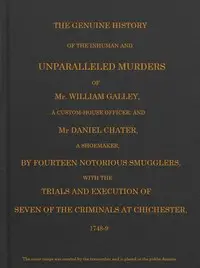"King Henry VI, Part 3" by William Shakespeare is a historical play that vividly portrays the intense power struggles of the Wars of the Roses. It zooms in on the clash between the York and Lancaster families as they fight for the English throne. King Henry VI is shown as a weak leader, while the Duke of York boldly challenges his right to rule, creating a tense political atmosphere from the start. The characters, especially Queen Margaret, show deep resolve and fierce loyalty. The early scenes highlight the themes of betrayal and the relentless pursuit of power that drive the bloody conflict. With strong words and rising tension, the beginning of the drama reveals the deep family and political divides with promises of battles to come.

King Henry VI, the third part
By William Shakespeare
In a kingdom torn apart, powerful families clash over the crown, leading to betrayal, bloodshed, and an all-consuming thirst for power.
Summary
About the AuthorWilliam Shakespeare was an English playwright, poet and actor. He is widely regarded as the greatest writer in the English language and the world's pre-eminent dramatist. He is often called England's national poet and the "Bard of Avon". His extant works, including collaborations, consist of some 39 plays, 154 sonnets, three long narrative poems and a few other verses, some of uncertain authorship. His plays have been translated into every major living language and are performed more often than those of any other playwright. Shakespeare remains arguably the most influential writer in the English language, and his works continue to be studied and reinterpreted.
William Shakespeare was an English playwright, poet and actor. He is widely regarded as the greatest writer in the English language and the world's pre-eminent dramatist. He is often called England's national poet and the "Bard of Avon". His extant works, including collaborations, consist of some 39 plays, 154 sonnets, three long narrative poems and a few other verses, some of uncertain authorship. His plays have been translated into every major living language and are performed more often than those of any other playwright. Shakespeare remains arguably the most influential writer in the English language, and his works continue to be studied and reinterpreted.



















